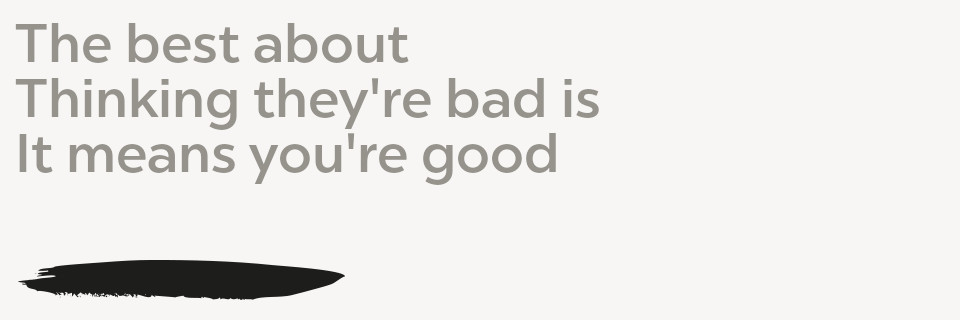Part 1/3: How the Outdated Frame of Good Versus Evil Enables Victimhood
Relationships are hard, right?
It’s true, but they’re harder than they need to be.
The inherent challenge of intimate relating is exacerbated by unconscious, flawed perspectives. What follows, most people in our world would find deeply offensive and impossible to swallow.
It’s commonly held in our society that adults can be victims; that is to say, that when a bad thing “happens” to an adult, it’s possible that the recipient has no contribution or responsibility whatsoever to the situation.
This idea is a downstream expression of the ancient and primitive “good vs. evil” frame fabricated long before the rudimentary understanding of the unconscious. Our entire species was basically raised with the idea that “Bad people do bad things and should be punished while the good person is a hapless victim who deserves sympathy and justice.”
That’s the wishfully simple world many cling to; unfortunately, it’s far more complex than this.
For example, if I’m mugged at an ATM, 99.9% of the population would rush to my side and condemn the mugger. I would also want consequences for the assailant, but as a member of the .1%, I would investigate what my contribution was to being mugged.
Because I don’t subscribe to victimhood for adults.
I made the choice to go to that ATM, on that dark night, in that sketchy place, perhaps overriding an intuition I had that it was a bad idea. Have you ever had an intuition, ignored it, and then something bad “happened” to you? It didn’t just “happen” to you; it was a lesson in trusting yourself.
As someone recovering from deep self-mistrust, I’ve had a lot of those painful lessons!
Of course, it doesn’t mean that the mugger would be justified: they broke the law and that’s not okay. But just because someone does something bad, doesn’t mean the “recipient” (rather than victim) doesn’t have some contribution.
This perspective is sometimes called “blaming the victim” and is met with ire and outrage. Victim-blaming is the implication that the recipient’s hurt is somehow a result of something they did rather than placing responsibility solely on the “perpetrator.” (Notice how this excludes possible unconscious contributions.)
Again, this comes from the very neat “good vs. evil” frame validated by billions of religious adherents and the profound influence such models have had on our society, even as atheists and agnostics gain market share, because they take those outdated ideas with them.
But the kind of evil we concoct in fiction we don’t experience in reality. There are no dark forces intent on bringing pain and suffering to the world for its own sake, even if you believe in them. Adolf Hitler thought he was doing God’s work. So did the American Colonists who slaughtered tens of millions of Native Americans. So does that mean the U.S. was founded on evil, especially if we include slavery? Or was it founded on the “good” desire for freedom and independence?
Is essential good and evil duking it out inside each one of us every day? This is what religionists would have you believe, but it’s not an experience, nor does it explain very much phenomena in compelling ways.
Even when someone’s intention is to inflict pain on another, it’s inevitably for an understandable (but not healthy) reason. The long string of mass shootings in the U.S. are called “senseless” in the media, followed by calls for gun control, but this reveals a lack of curiosity about the root problem.
Mass shootings make sense if you understand how the unconscious works: it’s an understandable expression of anger that hasn’t been listened to for a very long time. You could call it “evil” in expression, but in essence it says, “I’m so angry I want to die, but before I go, I will be heard.”
I’ve felt that way before. Have you? Maybe something in your unconscious did, but you didn’t notice. Plenty of people have felt that way and not acted on it, but some do, unfortunately.
That’s a person who is in so much pain they can’t bear it, and wanting to make that pain go away at essence is a (tragically misguided) act of love, and forcing others to hear them is a (tragically misguided) attempt at connection.
Or, if you like, you can call them “evil,” it’s up to you. But which model explains the most with the least contradictions? Life is far more simple when there are good people and bad people (and of course, you’re one of the good ones, right?), but that doesn’t make it true or productive. Meanwhile, we go in circles about gun control instead of looking at how crippled our understanding is of emotional health.
Our unconscious expresses through actions that may not make sense to our minds, making it easier for us to categorize an act as good or evil, rather than dig into the complex drivers of our actions; a mix of buried essential treasure and festering wounds, bubbling up to finally be seen and heard. At our core, we desire to connect and feel love, and will do just about anything to meet that need, regardless of how misguided the actions. This lack of awareness ultimately leads us to experience even more pain and lack of connection and love simply because we remain unaware, labeling our actions as good or bad, without having curiosity to explore what’s underneath.
This completes the reframe from victim-enabling good versus evil to nuanced unconscious contributions. In the next piece, I’ll address how to mine unconscious triggers in intimacy so we don’t play victim to our partners.


